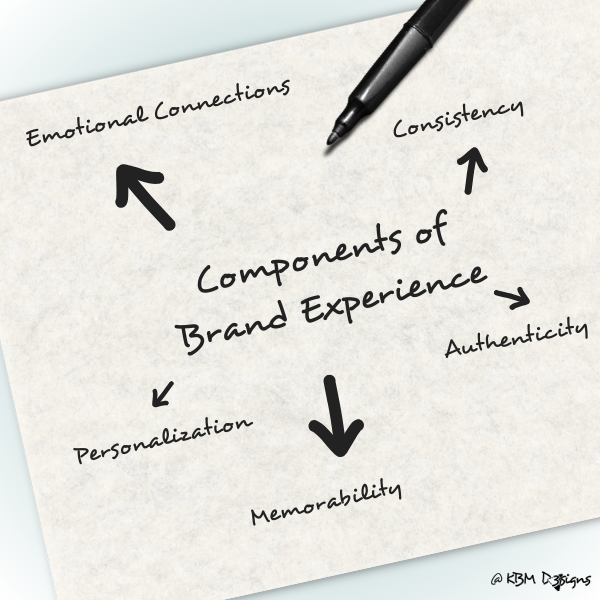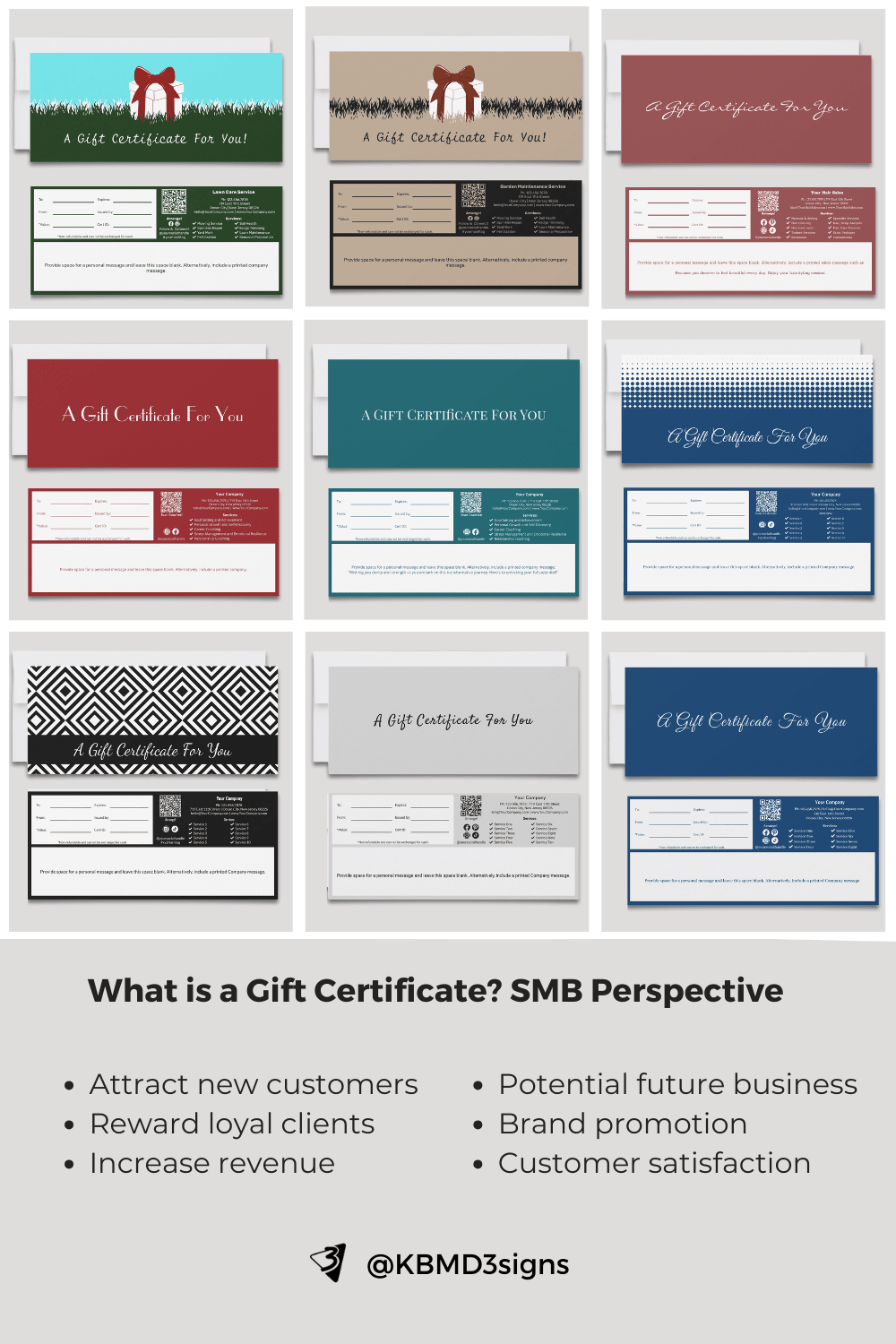What is Brand Experience? – In marketing, creating a lasting impression goes beyond simply promoting products or services. It involves cultivating a deep connection between consumers and brands. This connection is what we call brand experience. Overall, it’s a concept that has become increasingly important in today’s marketing strategies.

Article Content:
- Defining Brand Experience
- Emotional Connections
- Brand Consistency
- Brand Authenticity
- Brand Personalization
- Brand Memorability
- Frequently asked questions with concise answers about “What is Brand Experience?”
1. Defining Brand Experience
Brand experience encompasses every interaction a consumer has with a brand, whether it’s through products, services, marketing elements and strategies, customer service, or any other touch-point. It’s not merely about the functionality or quality of a product; rather, it’s about the emotions, perceptions, and memories associated with the brand.
Components of Brand Experience
- Emotional Connection: Brands strive to evoke positive emotions and resonate with consumers on a deeper level. Whether it’s through storytelling, messaging, or experiences, brands aim to establish an emotional connection that fosters loyalty and affinity.
- Consistency: Consistency is key in building a strong brand experience. Consumers expect a seamless experience across all touch-points, from online interactions to in-person encounters. Brands that deliver consistent experiences instill trust and reliability.
- Authenticity: Authenticity plays a crucial role in brand experience. Consumers are drawn to brands that are genuine and transparent in their communications and actions. Authenticity builds credibility and fosters trust, which are essential for long-term relationships with consumers.
- Personalization: In today’s highly competitive market, personalization has become a cornerstone of brand experience. Brands that tailor their offerings and communications to individual preferences and needs create more meaningful interactions and strengthen customer loyalty.
- Memorability: Memorable experiences leave a lasting impression on consumers, driving brand recall and advocacy. Whether it’s through unique events, creative marketing campaigns, or exceptional customer service, brands strive to create memorable moments that differentiate them from competitors.
Importance of Brand Experience
- Differentiation: In crowded markets, where products and services may seem similar, brand experience serves as a crucial differentiator. Brands that prioritize creating exceptional experiences set themselves apart and attract loyal customers.
- Customer Loyalty: Building strong brand experiences fosters customer loyalty and advocacy. When consumers have positive experiences with a brand, they are more likely to become repeat customers and recommend the brand to others.
- Increased Engagement: Brands that offer engaging and memorable experiences capture consumers’ attention and encourage them to interact more actively. This increased engagement leads to higher levels of brand awareness and affinity.
- Brand Equity: A positive brand experience contributes to the overall brand equity, which encompasses the value and perception associated with a brand. Brands with strong equity command premium pricing, attract top talent, and enjoy greater resilience against market fluctuations.
Examples of Successful Brand Experiences
- Apple: Known for its sleek design, intuitive user interface, and exceptional customer service, Apple has created a brand experience that goes beyond its products. From the moment customers enter an Apple store to the unboxing of a new device, every touchpoint is carefully curated to evoke a sense of excitement and belonging.
- Nike: Nike has built a brand experience around the concept of inspiration and empowerment. Through its innovative products, motivational marketing campaigns, and immersive events like the Nike Run Club, the brand connects with consumers on a personal level, inspiring them to push their limits and pursue their goals.
- Disney: Disney is synonymous with magical experiences, thanks to its theme parks, beloved characters, and enchanting storytelling. Whether it’s a visit to Disneyland or watching a classic Disney movie, consumers of all ages are transported to a world of imagination and wonder, creating lasting memories that keep them coming back for more.
In summary, in today’s competitive landscape, brands must move beyond simply selling products or services and strive to create meaningful experiences that resonate with consumers on a deeper level. By prioritizing emotional connection, consistency, authenticity, personalization, and memorability, brands can cultivate strong relationships with consumers. These relationships drive loyalty, advocacy, and long-term success. Brand experience is more than just a buzzword – it’s a fundamental aspect of modern marketing that can make all the difference in a brand’s success.
2. Emotional Connections
Emotional connection is a fundamental aspect of brand experience, as it involves tapping into consumers’ feelings and creating a bond that goes beyond mere transactions. Brands understand that emotions play a significant role in consumer decision-making and strive to evoke positive feelings that resonate with their target audience.
Storytelling
One of the most powerful ways brands establish emotional connections is through storytelling. By crafting compelling narratives that resonate with consumers’ values, aspirations, and experiences, brands can create a sense of empathy and understanding. Whether it’s sharing the journey of the brand’s founding, highlighting customer success stories, or conveying a message of hope and inspiration, storytelling allows brands to connect with consumers on a human level, fostering a deeper emotional connection.
Messaging
Messaging also plays a crucial role in evoking emotions and building connections with consumers. Through carefully crafted language, tone, and imagery, brands can evoke feelings of joy, excitement, nostalgia, or even empowerment. Whether it’s a tagline that captures the essence of the brand’s values or an ad campaign that tugs at the heartstrings, effective messaging resonates with consumers and reinforces the emotional connection they have with the brand.
Experiential Marketing
Experiential marketing is another powerful tool brands use to create emotional connections with consumers. By designing immersive experiences that engage the senses and evoke emotions, brands can leave a lasting impression on consumers. Whether it’s hosting live events, pop-up activations, or interactive online experiences, brands can create memorable moments that forge deeper connections and strengthen loyalty.
Ultimately, brands seek to create emotional connections that foster loyalty and affinity among consumers. When consumers feel a strong emotional bond with a brand, they are more likely to develop a sense of trust, loyalty and advocacy. Whether it’s through storytelling, messaging or experiences, brands that prioritize emotional connection can create meaningful relationships. And that drives long-term success.
3. Brand Consistency
Consistency is a vital component of building a strong brand experience because it ensures that consumers receive a uniform and cohesive interaction with the brand across all touch-points. Whether they’re engaging with the brand online, visiting a physical store, interacting with customer service representatives, or encountering marketing materials, consumers expect a consistent experience that reflects the brand’s values, messaging, and quality standards.
Reinforces Brand Identity
Consistency reinforces the brand’s identity and helps consumers develop a clear understanding of what the brand stands for. When consumers encounter consistent branding elements such as logos, colors, fonts, and messaging across different channels and platforms, it reinforces brand recognition and strengthens their connection with the brand.
Builds Trust and Reliability
Moreover, consistency builds trust and reliability. When consumers have consistent experiences with a brand, they develop a sense of confidence in its products, services, and overall reputation. They know what to expect from the brand and can rely on it to deliver on its promises consistently. This trust is essential for fostering long-term relationships with consumers and encouraging repeat purchases and brand advocacy.
Inconsistencies
Inconsistencies in brand experience can lead to confusion, frustration, and even mistrust among consumers. For example, if a brand’s online messaging contradicts its in-store experience or if there are discrepancies in product quality across different locations, it can undermine consumer confidence and erode brand loyalty.
By prioritizing consistency in every aspect of the brand’s operations, from product design and marketing to customer service and beyond, brands can create a seamless and reliable experience that resonates with consumers. Consistency helps brands stand out in a crowded marketplace, build trust with consumers, and ultimately drive loyalty and long-term success.
4. Brand Authenticity
Authenticity is a foundational principle in building a strong brand experience, as it reflects a brand’s commitment to being genuine, transparent, and true to its core values and identity. In today’s highly competitive marketplace, where consumers are inundated with advertising messages and marketing campaigns, authenticity stands out as a beacon of sincerity amidst the noise.
Aligning Actions
At its essence, authenticity is about aligning actions with words and staying true to what the brand represents. This means not only articulating values and missions but also embodying them in every aspect of the brand’s operations, interactions, and communications.
Valued by Consumers
One of the key reasons authenticity is so valued by consumers is that it fosters trust. In an era of information overload and skepticism, consumers are increasingly wary of brands that engage in deceptive practices or misrepresent themselves. Authentic brands, on the other hand, earn credibility and trust by demonstrating consistency between what they say and what they do. When consumers perceive a brand as authentic, they are more likely to develop a sense of trust and loyalty, leading to repeat purchases and positive word-of-mouth recommendations.
Building Genuine Connections
Authenticity also plays a crucial role in building genuine connections with consumers. In a world where people crave meaningful relationships, brands that authentically engage with their audience can forge deeper connections and foster a sense of belonging and community. Authentic brands don’t just sell products or services; they tell stories, share experiences, and invite consumers to be part of something larger than themselves.
Allows Brands to Stand Out
Moreover, authenticity allows brands to stand out in a crowded marketplace by showcasing their unique identity and values. When brands embrace their authenticity, they differentiate themselves from competitors and attract like-minded consumers who resonate with their message and ethos.
More Than Lip Service
However, achieving authenticity requires more than just lip service; it requires a genuine commitment to honesty, transparency, and integrity. Brands must be willing to listen to their customers, admit their mistakes, and continuously strive to improve. Authenticity is not something that can be manufactured or fabricated; it must emanate from the core of the brand and permeate every aspect of its being.
To sum up, authenticity is a cornerstone of the brand experience. And it builds trust, fosters genuine connections, and differentiates brands in a competitive landscape. By staying true to their values, mission and identity, brands can cultivate authenticity. This has the potential to resonate with consumers and drive long-term success.
5. Brand Personalization
Personalization has emerged as a fundamental strategy for brands seeking to enhance the customer experience and differentiate themselves in a competitive market landscape. In essence, personalization involves customizing products, services, and communications to meet the specific preferences, needs, and behaviors of individual consumers.
Consumer-Centric Approach
One of the primary reasons personalization has become so crucial in today’s market is the shift towards a consumer-centric approach. Modern consumers expect brands to understand their unique preferences and deliver tailored experiences that resonate with them on a personal level. By leveraging data analytics, artificial intelligence, and machine learning algorithms, brands can gain insights into consumer behavior, preferences, and purchase history, allowing them to deliver personalized recommendations, offers, and content.
Relevant and Timely Experiences
Personalization enables brands to create more meaningful interactions with consumers by providing them with relevant and timely experiences. Whether it’s recommending products based on past purchases, addressing customers by name in marketing communications, or offering exclusive discounts on their favorite items, personalized experiences make consumers feel valued and understood, strengthening their emotional connection with the brand.
Loyalty and Retention
Moreover, personalization has been shown to drive customer loyalty and retention. When consumers receive personalized experiences that align with their preferences and needs, they are more likely to return to the brand for future purchases and recommend it to others. By fostering loyalty among existing customers, personalization can also lead to increased customer lifetime value and higher profitability for the brand.
Throughout the Customer Journey
Personalization is not limited to just product recommendations or marketing communications. It extends across various touch-points throughout the customer journey. For example, brands can personalize the shopping experience on their website by displaying relevant content and offers based on a user’s browsing history or demographic information. Similarly, brands can personalize customer service interactions by providing tailored assistance and support based on a customer’s past interactions with the brand.
The Right Balance
However, it’s essential for brands to strike the right balance when implementing personalization strategies. While consumers appreciate personalized experiences, they also value their privacy and may be wary of brands that overstep boundaries or misuse their personal data. Brands must be transparent about how they collect, store, and use customer data and ensure that they obtain explicit consent before implementing personalization tactics.
In conclusion, personalization has become a cornerstone of brand experience in today’s competitive market. Brands that leverage data-driven personalization strategies to tailor their offerings and communications to individual preferences and needs can create more meaningful interactions, drive customer loyalty, and ultimately, achieve long-term success in the digital age.
6. Brand Memorability
Creating experiences that leave a lasting impression on consumers, leading to increased brand recall, positive word-of-mouth and brand advocacy is a vital aspect of the brand experience. The ability to differentiate and memorize is essential for brands seeking to capture and retain consumer attention.
Impact on Brand Recall
One of the key reasons why memorability is so important is its impact on brand recall. When consumers encounter memorable experiences with a brand, whether it’s a unique event, a creative marketing campaign, or exceptional customer service, they are more likely to remember the brand and its offerings when making purchasing decisions. Memorable experiences create strong associations in consumers’ minds, making it easier for them to recall the brand when they are in need of a particular product or service.
Drive Brand Advocacy
Moreover, memorable experiences can also drive brand advocacy. When consumers have positive, memorable interactions with a brand, they are more likely to share their experiences with others, whether through word-of-mouth recommendations, social media posts, or online reviews. Memorable experiences create brand ambassadors who actively promote and endorse the brand to their friends, family, and social networks, helping to expand the brand’s reach and influence.
Differentiation from Competitors
Brands employ various strategies to create memorable experiences that differentiate them from competitors. One common approach is to organize unique events or activities that engage consumers in interactive and immersive ways. These events can range from product launches and pop-up shops to experiential marketing campaigns and branded experiences. By providing consumers with memorable moments that are enjoyable, entertaining, or emotionally resonant, brands can create positive associations that linger long after the event has ended.
Creative Marketing Campaigns
Creative marketing campaigns are another effective way to create memorable experiences. Whether it’s a clever advertising campaign, a viral social media stunt, or an engaging content series, brands can use creativity to capture consumers’ attention and leave a lasting impression. Creative campaigns that evoke emotions, tell compelling stories, or challenge conventional norms are more likely to resonate with consumers and be remembered long after the campaign has concluded.
Exceptional Customer Service
Exceptional customer service is also a key driver of memorability. When brands go above and beyond to exceed customers’ expectations and deliver exceptional service, it creates memorable experiences that leave a positive impression on consumers. Whether it’s resolving a customer issue promptly, personalizing the shopping experience, or providing unexpected surprises and delights, brands that prioritize customer service can create strong emotional connections that foster loyalty and advocacy.
In closing, memorability is a critical aspect of the brand experience. It can drive brand recall, advocacy and long-term success. By creating memorable experiences through unique events, creative marketing campaigns and exceptional customer service, brands can differentiate themselves from the competition. In doing so, they build strong emotional connections with consumers that last over time.
-

What is a Gift Certificate? A Small Service Business Perspective
Read the post …: What is a Gift Certificate? A Small Service Business Perspective -

Custom Name Tags for Small Businesses – Personalize Your Brand
Read the post …: Custom Name Tags for Small Businesses – Personalize Your Brand -

How to Incorporate Custom Leisurewear into Your Team’s Uniform
Read the post …: How to Incorporate Custom Leisurewear into Your Team’s Uniform
7. Frequently asked questions with concise answers about “What is Brand Experience?”
Brand experience encompasses every interaction a consumer has with a brand, including products, services, marketing campaigns, and customer service, shaping their perceptions and emotions towards the brand.
Branding involves creating a distinct identity and image for a brand, while brand experience focuses on the actual interactions and experiences consumers have with the brand.
Brand experience is crucial because it influences consumer perceptions, drives loyalty, and fosters emotional connections with the brand, ultimately impacting purchase decisions and long-term relationships.
The key components of brand experience include emotional connection, consistency, authenticity, personalization, and memorability, which collectively shape consumers’ perceptions and interactions with the brand.
Brands can create memorable experiences through unique events, creative marketing campaigns, exceptional customer service, and personalized interactions that leave a lasting impression on consumers.
Emotional connection is essential in brand experience as it fosters loyalty and affinity by resonating with consumers on a deeper level, evoking positive emotions, and building meaningful relationships.
Personalization enhances brand experience by tailoring offerings and communications to individual preferences and needs, creating more meaningful interactions and strengthening customer loyalty.
Consistency is key in building a strong brand experience as it ensures that consumers receive a seamless experience across all touch-points, instilling trust and reliability in the brand.
Brand experience encompasses all interactions consumers have with a brand, while customer experience specifically focuses on the interactions and experiences customers have during their journey with the brand.


